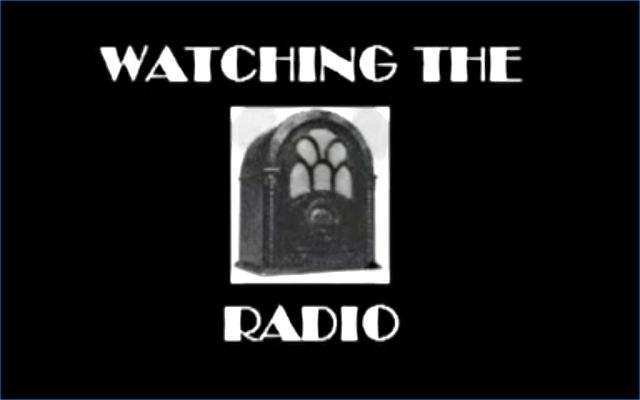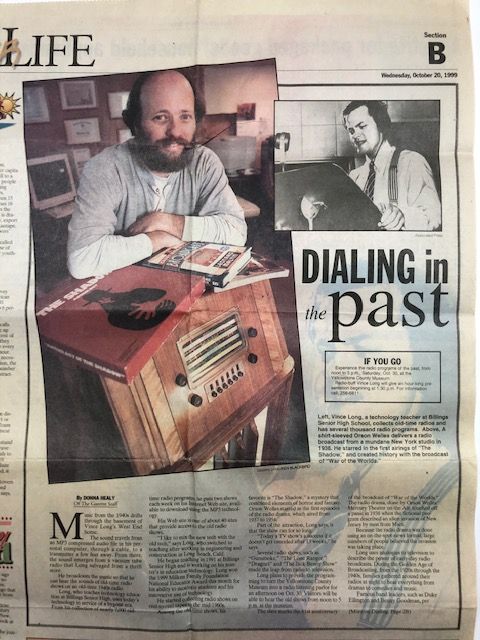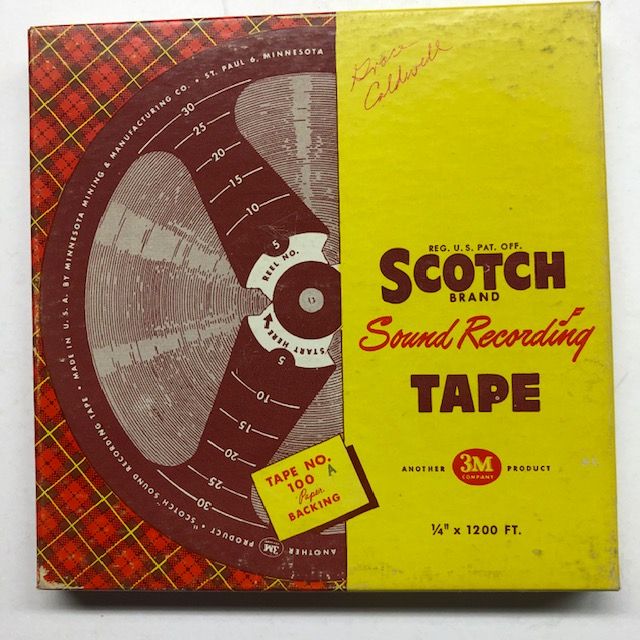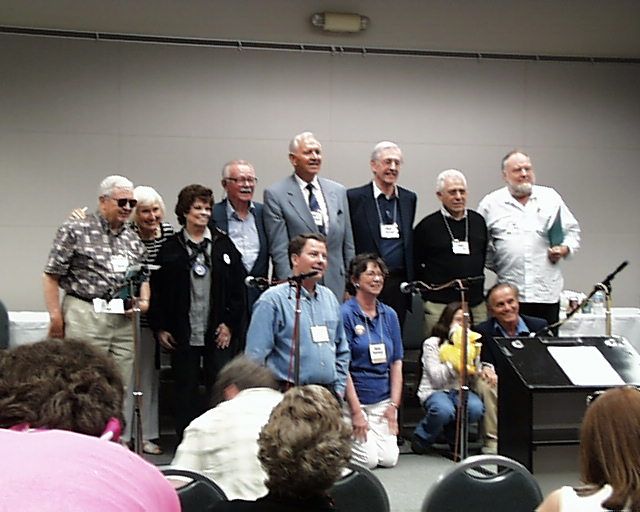Through the Years
- What I Was Listening To
- The Radios
- Old Time Radio - Part 1
- Old Time Radio - Part 2
- New Time Radio - Part 1
- New Time Radio - Part 2
Links
Old Time Rado - Part 2
 In Old Time Radio - Part - 1, I looked at what got me hooked on this entertainment genre, the stations I would listen to, how I built a collection of OTR shows, my transition to the digital world, and the database software I eventually wrote to keep track of everything.
In Old Time Radio - Part - 1, I looked at what got me hooked on this entertainment genre, the stations I would listen to, how I built a collection of OTR shows, my transition to the digital world, and the database software I eventually wrote to keep track of everything.
In this Part 2 I'll review some tangent activities that came along due to my interests and passion in this hobby. No longer just collecting and listening on my own, I've reached out in various way to share what I have learned with a wider community, both locally and online.
The OTRAnnex
While briefly mentioned along the way, my OTR web site really does need a bit of attention here. When I received my first World Wide Web access I looked at these things called web pages and wonder how they were created. I couldn't Google that query because it wasn't around yet, but I did find an explanation that said the pages were created in a language called HyperText Markup Language (HTML) and were usually "hosted" on your Internet Service Provider's server. After plugging a way for a few hours I had my first web site online. This was in 1996. I added to the site, little by little, and before long had a page devoted to OTR. My initial idea was to have a page for each program I wanted to feature with a sample sound file to listen to. I had built something similar a few years before as a standalone application on a Macintosh computer using HyperCard and this all felt somewhat similar.
Move ahead a few years and I am now the self-appointed webmaster of the web site for the high school where I taught. I had abandoned my original personal web site and was putting my efforts into the high school site but also poached some hosting space on the server, which was physically located in my classroom, for my new OTR site which I named "The OTR Annex" since it was more or less part of the school site.
This new site worked out just great. I wanted to provude a few shows for downlaoding and did so with a gimmick: visitors would vote for which of 4 shows they wanted featured on the next weekly update. The reason behind doing this was that I wanted to learn how to make dynamic/interactive web pages, to collect and store user responses, with the idea that I could use this functionality to write online quizzes for my students. The language I was using was Perl which was fine but receiving the data from the user through the http protocol with this language was nothing short of black magic. The translator I was using, picked up from an open source tutorial site, was called The Magic Decoder Ring, a coincidental reference to premiums offered by OTR shows back in the day. (Yes, I know there wasn't really a "ring.")
I eventually got this all working and the OTRAnnex continued to live in the background of the school server without an actual domain name for a year or so. People found their way to it by my sharing its IP address or a link that someone had made to it. Then, in 2003, I found a recording of a boxing match from 1960 that I knew was already in circulation but in that version the recording tape had run out right at the end of the final count. The copy I found continued on after that moment making it a more complete recording. I put it up on my site and posted that information to the OTR mailing list. Of course, LOTS of collectors swooped in to get their copy, an action that overwhelmed the meager bandwidth I had to my server which caused a massive slowdown for Internet access in our building. Whoops. The network people in the school district narrowed the problem down to my server and called to ask what was going on. I sort of played dumb and said I'd look into it. I removed the file and put up a notice that it would return shortly. I figured that it was time to buy a domain name and my own hosting account, which I did, and www.otrannex.com was born.
I have reworked the site a few times over the years, changing the look and and feel, switching from Perl to PHP, and adding additional features. Prominent of those are the Paper Tape Archive, the 600 Reels Project, and the Special Features page which serves as a catch-all for OTR-related items that really don't fit anywhere else. I still feature shows to download, 2 news ones each week, one of which is still selected based on the votes of vistors.
A Brush with Lux
Around 1996 I took an online engineering class through Montana State University, Bozeman. The software we used was primitive and I was having trouble uploading my final project to the system so I just placed it on my web site and sent a link to the professor. He said that he downloaded it just fine and asked what was up with all that Old Time Radio stuff on my site. I told him that it was a hobby I had been indulging in for quite a few years. It turned out that his father was George Wells, a writer for Lux Radio Theater. Small world.
My KEMC Interview
When I started teaching in 1991, I was an early adopter of intergrating technology into school curriculum and had my own students doing some amazing things. As I was always looking for ways to get them recognition for their accomplishments, in 1998, knowing that the mother of one of my students had an interview program on our local National Public Radio station, KEMC, I suggested that he ask her to have some students on her show and talk about the cool stuff they were doing. A few days later he comes in and says she thinks that's a great idea but is more interested in interviewing me about my Old Time Radio hobby. I had met her once before at a parent-teacher meeting and knew that she was also the executive director of our local community access cable teleivion station. We chatted and set up a date for the radio interview and I went up to the station and we recorded it. You can listen to it here:
KEMC Interview, May 1998 - (36:18)
Watching the Radio
On the way home from the above interview, after having talked to Susan about community access cable television about which I knew nothing, I decided that I would have my own TV show where I would play Old Time Radio programs. Since it would be on television, I'd call it "Watching the Radio." The whole idea really arrived all at once. I put togther a prototype show and asked her son give her the tape. She called and said that not only would it air but she'd found me a corporate sponsor that would cover my membership with the station also bring in some money to the station itself.
For the next 15-years or so I produced a weekly episode of the show. It opened with an animation of old radios and personalities to some bouncy music, followed up by my voiceover introducing this week's show, which then played to a screen that showed one of my old radios alongside which I displayed the name of the show being played, the original broadcast date, and a link to my web site. I did take a break and ran repeats for a spell and, at some point, switched to producing the show on DVD rather than VHS tape. It aired for the final time in December 2016. I figured that after about 700 shows it had run its course and I was ready to devote my time to some other projects.
You can learn more about the show and watch a sample on my web site here: Watching the Radio
Exhibitions
 I've put on two museum exhibitions related to OTR. In 1999, at our county history museum, the Yegen Museum, located adjacent to the Billings airport, I set up an exhibition called "Reliving Radio's Past" where I set up a room to make it look like a 1930s or 1940s parlor and piped in OTR shows. The room had period furniture, an old radio, and magazines and newspapers from the era. As part of the exhibition I did a talk and leading up to the opening and the Billings Gazette did an article about me and my collecting OTR. Shown at the right, click on it to open as a PDF.
I've put on two museum exhibitions related to OTR. In 1999, at our county history museum, the Yegen Museum, located adjacent to the Billings airport, I set up an exhibition called "Reliving Radio's Past" where I set up a room to make it look like a 1930s or 1940s parlor and piped in OTR shows. The room had period furniture, an old radio, and magazines and newspapers from the era. As part of the exhibition I did a talk and leading up to the opening and the Billings Gazette did an article about me and my collecting OTR. Shown at the right, click on it to open as a PDF.
Another exhibition was at the Western Heritage Center in Billings in 2000 as part of their "Snap Shots and Long Shots: Reflections and Predictions at the Millenium" project. I set up a computerized kiosk that allowed visitors to browse through radio programs, many of which featured something about Billings or Montana.
The Paper Tapes
 As a result of that newspaper article, I was called by a woman who was downsizing and looking for a home for her late-husbands tapes. I tell the whole story of acquiring these tape, and three recorders, on the Brush BK-401 page so I won't detail it here but I ended up with 200 reels of tape that became the Paper Tape Archive project on my web site. The collection featured many radio broadcasts from Billings and some from the networks, all originally broadcast between the late-1940s and the early 1950s.
As a result of that newspaper article, I was called by a woman who was downsizing and looking for a home for her late-husbands tapes. I tell the whole story of acquiring these tape, and three recorders, on the Brush BK-401 page so I won't detail it here but I ended up with 200 reels of tape that became the Paper Tape Archive project on my web site. The collection featured many radio broadcasts from Billings and some from the networks, all originally broadcast between the late-1940s and the early 1950s.
Public Speaking
I have had the opportunity to speak publicly about the history of the Golden Age of Radio several times.
2016, The Golden Age of Radio, Yellowstone Historical Society
2015, Western Life in Radio, The Westerners, how the West was portrayed on radio
2012, The Golden Age of Radio, Western Heritage Center High Noon Series, click here to watch the video.
2012, The Women in Radio, Western Heritage Center High Noon Series, a focus on women writers, producers, and actors in radio
OTR in World War II
It was the 60th anniversary of the U.S. entry into World War II and a local AM radio station, KBUL, was doing a series about it on their morning variety show and I was asked me to talk about radio's role. We taped it one afternoon and they broke it into 5 segments to run Monday through Friday. You can listen to the entire interview in one piece here:
KBUL - OTR in World War II - Decemeber 3, 2001 ( 33:01)
The 600 Reels
Knowing of my interest in recording tapes, a friend invited me to his father-in-law's estate sale preview and I ended up going home with a tape machine and 563 reels of tape. It took a few years to go through all the tapes and before I did, I set up a web page to document what I found on each one as I examined thir contents. Material that was not copyrighted was posted to the site. While many tapes were simply copies of music records, the bulk, about 1,000 hours, were a mix of off-the-air broadcasts of a religious or political nature, and local/live recordings made around Billings. This was truly a fantastic find and the source of lots of local history.
The web page for this project with lots more information about is found here: The 600 Reels
If you would like to read a story written about the project by a local, online paper click here: Offbeat Billings history saved, posted on the web - May 4, 2018
OTR Embedded in an Art Project
In the Fall of 2016 I took the 3D Foundations class at Montana State University, Billings as part of my BFA program. One of the assignments asked us to create a 3-dimensional piece that would allow the viewer to have a unique experience as they interacted with it. My idea was to create a box that looked something like an old steamer trunk and inside this box would be items related to Old Time Radio along with an actual radio on which they could tune in some old shows.
I built the box, added interior compartments, and put trunk-like straps around the outside. When the box is opened, it displays a 16" radio transcription disc, an album of 78 RPM records, a copy of a "Radio Stars" magazine, a reel of paper-based recording tape, a World War II ration book, a box of radio tubes, an Edison cylinder, a War Department "Radio for Beginers" training manual, a crystal radio, a set of headphones, a spool of recording wire, and a Philco portable radio. While the radio doesn't actually work, what I wanted to do was to install a small AM receiver in it that would be tuned to an AM transmitter mounted behind the false panel in the upper portion of the box. The transmitter would be fed radio programs by a Raspberry Pi mini computer. I received positive feedback during the class critique and believe I received a good grade on the project.
The Transcription Discs
I got a call from the director of the Western Heritage Center who said that a woman had called them and wanted to know if they wanted some old records of radio shows. They didn't and thought of me so I gave her a call. She said they were found in her mother's old stuff and she really didn't know where they came from but they were big and she didn't have a record player anyway. I told her I'd take them and asked what she wanted for them but she said she just wanted them to find a good home. I asked if she listened to radio as a kid and she said she didn't but as we talked more she mentioned that she really liked Red Skelton so I told her I'd make her set of Red Skelton radio programs on CD. She gave me direction for how to get to their ranch and we set a date and time for me to meet her there. It was about 30 miles west of where I lived and when I got there her husband came out of the barn to meet me. A very nice gentelman, he explained their operation: a bison ranch. He took me into one of the corrals so I could get a very close look at the animals. They are big. Eventually she comes out with the discs, 22 of them, and I gave her the Skelton shows. Her husband wanted to give me some bison meat but, being a vegetarian, I thanked him and graciously declined.
When I got home I inventoried what I had and they appeared to be radio shows for Armed Forces Radio, some marked "Navy." They were all music shows like "Jubillee." I checked them against a couple web sites that list most of the shows in circulation and many of these are not listed. I do know someone with the right kind of player and will, someday, get the discs to him for transferring to digital.
Here's a listing on the shows on those discs:
Jubilee, Series: H-11, Program No. 125, Part 1 & 2
Christmas Program No. 7, "Music We Love" Part 1 & 2
One Night Stand, SSC 7-8-1, Prog. 664, Part 1 & 2
New Year's Dancing Party, Series: H-9-124, Part 3 & 4
Sound Off, Program No. 425
Sound Off, Program No. 426
Music From America, 142, Part 1 & 2
Christmas Command Performance, Series: H-45, Part 1 & 3
Christmas Command Performance, Series: H-45, Part 5 $ 7>br>
Christmas Command Performance, Series: H-45, Part 6 & 8
Christmas Program No. 15, "John Charles Thomas" Part 1 & 2
Jubilee, Program No. 94, Part 1 & 2
GI Jive, Program No. 729
GI Jive, Program No. 730
Command Performance, Program No. 137, Part 1 & 2
Hymns From Home, Series: H-22, Program No. 261
Hymns From Home, Series: H-22, Program No. 262
Melody Round Up, Lum and Abner, Program No. 449
Melody Round Up, Lum and Abner, Program No. 450
Date With Duke, 14, Part 1 & 2
Jubilee, Series: H-11, Program No. 139, Part 1 & 2
Christmas Program No. 8, "Music America Loves Best" Part 1 & 2
The REPS Showcase Conference

Watch the panel discussion video here: 2004 REPS Panel Discussion
My wife and 13-year old son traveled with me and while I was geeking out at the conference they took in the sights of Seattle. On our last day there I ran the 10K in their Shore Run along Lake Washington. Great fun for all.
Click on an image to enlarge it.
Updated January 2021.